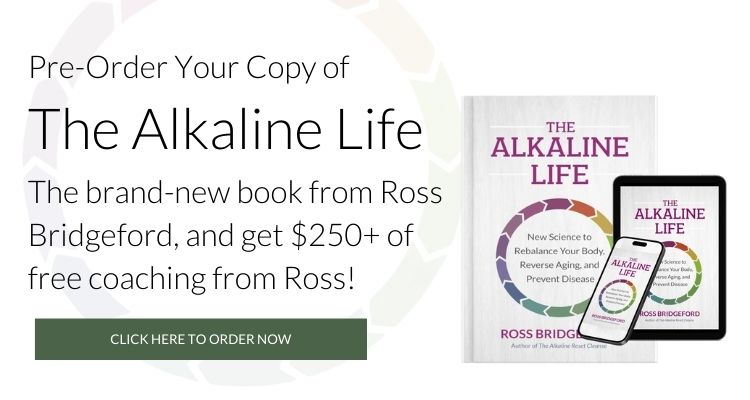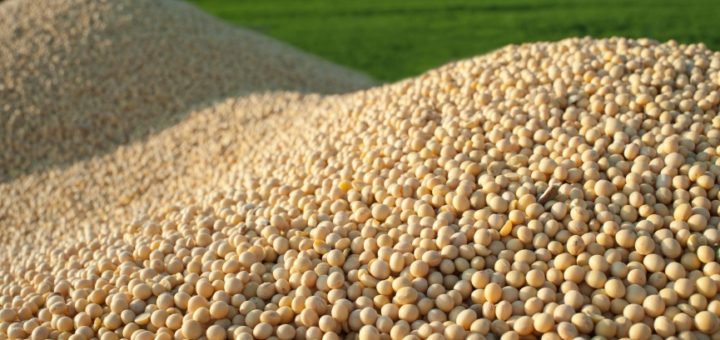Here End the Soy Debate
I have been troubled by the constantly recurring soy debate for quite a while now. But whenever you try to research it you quickly notice that you are entering into a hot topic zone because the majority of things you read (articles, blog posts, forum posts etc.) are so over-the-top and biased that it is difficult to come to any real conclusion without feeling slightly misinformed.
Well, from having a browse through my site stats I found a nice site that has a very well written, and very pragmatic view on the debate which I think mirrors my feelings exactly.
…You would think that these people would spend their time warning you about the dangers of eating too much fat, sugar, dairy, hydrogenated fat, eating too much period, the dangers of prescription drugs, or even visiting your local hospital. I think that people should be more concerned with the high hormone and bacteria counts and allergens in meat and dairy, fluoridated water, environmental toxins and the long lists of chemicals added to processed and packaged foods.
When you think about it in this context, it is not surprising that the majority of the criticism of soy actually comes from the dairy industry. Especially not surprising when you think about the other types of biased research and campaigning that they do on a regular basis.
Personally, I am not opposed to soy really, everything in moderation is the order of the day here, as with everything. But that does not mean that there are not still dangers for soy-users. Bear in mind that many of the large dairy companies chose the ‘if you can’t beat ’em, join ’em’ route – so if you have an ethical issue with the way that milk is produced and farmed then check the manufacturer of your soy products too.
Ethical and environmental issues aside, there are still some quick points to remember when you are buying your soy products (especially soy milk):
- Make sure it is unsweetened
- Check that it is organic
- Look out for bleaching agents – soy milk should be an off-white colour. If yours looks like cows milk – it is probably bleached
- Look out for hidden flavourings
Ideally, we would all make our own almond milk – but as that is not a possibility for most people, I think soy is absolutely fine to use in moderation.






what does it mean your comment is awaiting moderation?
please contact my email:[email protected] with answser
I want to be able to look up a product such as ZenSoy soy milk….they list ingred as filterwater/organic whole soy beans,organic granulated cane juice/natural flavors/calcium carbnate/sea salt/carrageetnan/fit a/palmitate/vit d2/b2/b12
and know if it has bad stuff such as UNfermented soy in it….
or high fructose corn syrup……………………
so i need either a list to look it up in//or somewhere that i can ASK about a product and get the answer from knowledgeable people…what do you suggest? thank you.
Hi
I suggest contacting the manufacturer.
Thanks
Ross
Thank you to The Nourisher for some well referenced material to balance a blog with a little too much speculation for my liking.
Well said Pam.. Lynne and Ross it would be worth reading Stephen Byrnes material on protein and the myths of vegetarianism. A google search will get you to them.
Mercola also has a great resource page on soy – http://www.mercola.com/article/soy/index.htm
Well balanced health seems to be a combination of listening to the innate intuition of your body and making informed choices from carefully researched information. Without either of these problems are sure to arise 😀
i feel like everything in this world we consume whether it be food, water, air… can cause cancer. i say eat what makes you feel good health wise, energizes you, helps your mind think clearer, etc. while always keeping in mind moderation is key to everything.
Hey Jess
People could do far worse than to follow your philosophy, I like it a lot!
Thanks for contributing
Ross
I have to agree with The Nourisher, soy has been in use in asian countries from quite awhile but fermented, not made straight into pseudo meats and other snack foods. And it’s not a sole source of protein in those countries either. There’s been a lot of research showing that soy interferes with thyroid function. I actually like Tofu but I gain weight when I eat too much of it, even if I change nothing else in my diet and my caloric intake stays the same. I noticed this before any real research was done and I couldn’t figure out what was going on. I was so sure I was being healthy.
Lynne said soy is a healthier protein source than beef but I don’t see how when it’s not a complete protein (amino acid content) and its ‘biological value’ score is consistently lower than beef’s. I guess if you’re currently demonizing saturated fat and there’s only a choice of beef or soy, you might choose soy. I personally wouldn’t because I believe in the value of saturated fat, plus the zinc and the very bioavailable iron content clinch it for me.
I understand the controversy!!!
I recently spent a great deal of time researching soy and its role in cancer prevention at great length, tearing apart every credible study I could find in the literature.
These studies have revealed conflicting results. The addition of soy to our diets in the U.S. has been touted by those who have noted that Asian women who consume much more soy, have a greatly reduced risk of breast cancer. Is it the soy?
Some studies have shown that soy may be associated with a small reduction in the incidences of breast cancer, but studies with breast cancer cells show that soy can actually promote tumor growth.
We could speculate that the estrogen-like effects of soy are preventative before a tumor starts but accelerate growth once a tumor develops. Or perhaps soy has different effects on pre- and post-menopausal women.
Our conclusion after our research? If you enjoy soy, go ahead and eat tofu and soy nuts. Soy is a healthier source of protein than beef.
Lynne Eldridge M.D.
Author, “Avoiding Cancer One Day At A Time”
http://www.avoidcancernow.com
Thanks for your points on the debate. I too am interested in the soy debate and have read up on it extensively. I particularly like an article I found on Mark’s Daily Apple – http://www.marksdailyapple.com/10-things-to-know-about-tofu/. Definitely worth a look. Thanks for the post again!
I definitely do not agree. Soy has never been eaten unfermented in the history of humanity. Until 5000 years ago it was only used by Asian countries as a fallow crop. It fixes nitrogen. That should give you a hint as to it’s use in modern agriculture. Agricorp rapes the soil with mono crop tilling until there is just about no nutrients left then fallows with soy. But these thrifty guys can’t not make money, so they have come up with all sorts of junk science to sell the soy as a health food. In essence they are taking advantage of the vegetarian movement and people’s desire to avoid animal cruelty to offload their fallow crops with dire repercussions.
The Chinese only began using soy as a food once they discovered how to ferment it. Thus foods like soy sauce, tempeh, natto and miso were invented. They most certainly did not eat soy milk, soy ice cream or the most disgusting concoction, soy yogurt. Nor did they put it in just about every bakery item, protein bar and snack food available.
Unfermented soy is a carcinogen, a goitrogen and drags minerals from your body. There is a more detailed article on Nourished Magazine here.
http://editor.nourishedmagazine.com.au/articles/the-ploy-of-soy
Basically, soy products are good for us. As for most food, we have to take them moderately. I know that soy is the main source of protein for some vegetarians.
There are commercially available domestic appliance to make soy milk. If we have concerns regarding soy manufacturers, make the soy milk ourselves.
The problem with soy is that it actually aggravates some kinds of cancers. I thought otherwise but research shows that you shouldn’t overdo your soy supplements.
consume wisely and appropriately shud be fine, too much of sth is always no good.
interesting. I enoyed reading your points.
I have researched about this debate but it is still a battle and a tough debate to tackel.